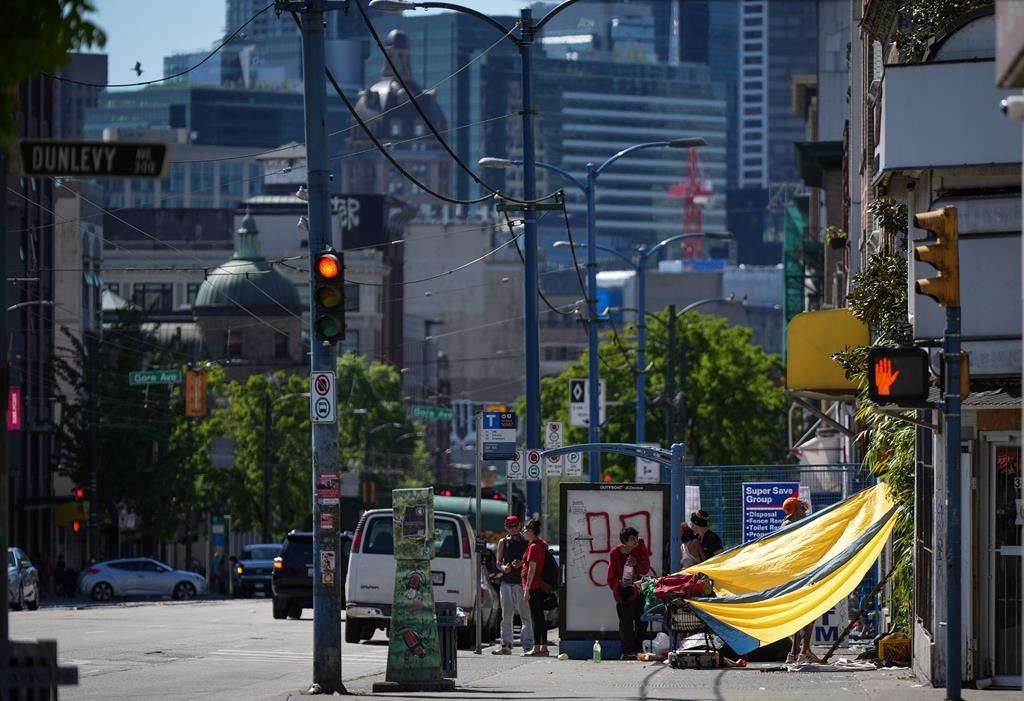Support strong Canadian climate journalism for 2025
An outreach team for the Union Gospel Mission in Vancouver has been working in the city's Downtown Eastside to ensure people are aware and are prepared to cope with the latest heat spike across parts of B.C.
Mission spokeswoman Nicole Mucci says those who are experiencing mental illness, homelessness or who have chronic health conditions are most at risk of illness and death during such heat waves.
Record-breaking temperatures moved into southern B.C. on Sunday and then spread, prompting heat warnings and special weather statements across southern and central B.C., and into southern Alberta.
In Vancouver, Environment Canada says daytime temperatures will reach up to 37 C, with overnight lows of about 17 C that it expects will continue in the region until Wednesday.
Mucci says staff have been handing out water, hats and sunscreen and are encouraging people living on the Downtown Eastside to seek out cooling stations during the day and stay in shelters at night.
B.C.'s Ministry of Emergency Management has said a repeat of the 2021 heat dome, which claimed more than 600 lives, is not in the forecast but it warns people to take precautions to stay out of the heat, drink water and limit activity.
The coroner's report from the 2021 event said most of the deaths happened indoors and were adults above 60 years old who didn't have air conditioning. It said the number of deaths for those living in poverty was "lower than may have been expected."
"It is important to learn from the people living in those areas, such as those living in the Downtown Eastside of Vancouver," the report said. "Lived experience must inform community strategies for prevention from planning through implementation."
Mucci agreed, noting it is also important to remember that many people in areas such as the Downtown Eastside live in affordable or "precarious" housing, like single rooms, and don't always have access to fans or air conditioning.
She noted the mission's housing team has worked to ensure its shelters are equipped with cooling areas.
Mucci said they've noticed many groups within the community now watch to ensure residents are prepared and protected.
"Whether that's folks who are unhoused, folks who are experiencing addiction, perhaps those with mental illness, or those who are maybe elderly or disabled, and just letting them know that hot weather is coming," she said.
Environment Canada reported at least a dozen temperature records were broken in B.C. on Monday, surpassing the eight that fell on Sunday.
Canada's high was also recorded near Lytton, B.C., where temperatures reached 40.5 C.
The weather agency cautions people to be aware of heat illnesses and its symptoms, including swelling, rash, cramps, fainting, heat exhaustion, heat stroke and the worsening of some health conditions.
Bulletins from the weather office show much of the coastal regions will return to seasonal temperatures by Wednesday, but central and southern regions of the province will endure the heat a day or two longer.
Temperatures in several areas, from the Boundary and Okanagan to parts of the North Thompson and Kootenays, are forecast to see daytime highs of about 39 C.
This report by The Canadian Press was first published Aug. 15, 2023.




Comments